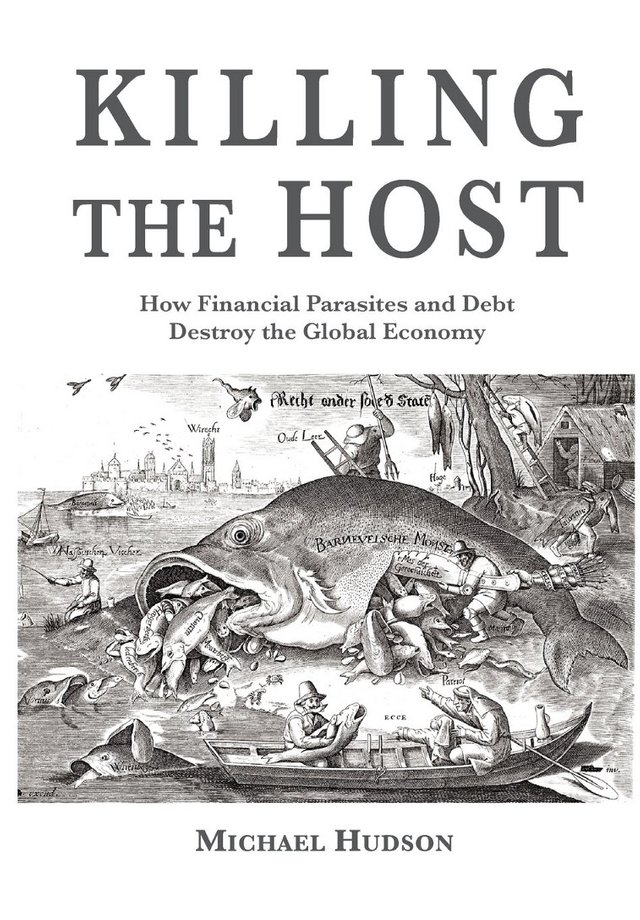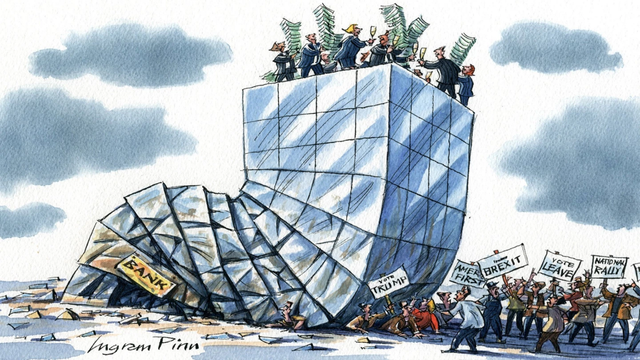Parasite Economy?
The financialization of the economy has brought about patterns of inequality, cultural and social change. Underpinning these changes is a particular shift in how capital is intermediated. The success of the financial sector has led to the failing of the ‘real economy’, existing of companies and individuals that produce goods and services which add real value to the economy.

A great metaphor is made by M. Hudson, who compares the financialization of the economy with how parasites control a host’s brain.
“The most important aspect of parasitism is the need for parasites to control the host’s brain. In nature, a parasite first dulls the host’s awareness that it is under attack. Then, the ‘free-luncher’ produces enzymes that control the host’s brain and make it think that it should protect the parasite — that the outsider is part of its own body, a crucial part of it which needs special protection. The financial sector resembles something similar by pretending to be part of the industrial production-and-consumption economy. In general, this means that most of the products and services offered by financial institutions are not contributing to — or representing — production as we know it. These goods and services exist outside of the real economy but extract (feed on) profits, which are originating from the real economy”[1].

Financialization is defined as ”the increasing role of financial motives, financial markets, commercial actors and financial institutions in the operation of the domestic and international economies” [2]. Power ultimately tends to flow towards the lenders (wealthy individuals, banks and financial institutions). In the end, the borrowers lose control of their systems — which become fundamentally less democratic.
One of the topics which are frequently associated with financialization is increasing economic inequality. Research has shown that the phenomenon of growing financialization further boosts income inequality. Revenues from financial investments are, for the most part, not reinvested in the businesses that make up the bedrock of the real economy. One of the consequences is that wages of workers stagnate and wage-earners are ever more indebted [3]. Also, most of the returns made by the financial sector go to the concentrated financially prosperous, further driving inequality in society.
This trend has essentially turned the United States from a nation of savers into a nation of borrowers. Personal savings are declining, and consumer debt is replacing the gap that is created by stagnant or declining income (versus the ever-increasing cost of living). Economic polarization on a bigger scale is occurring between creditor and debtor nations on the international level. The Eurozone, for example, is being divided with Germany, Netherlands, Norway, Sweden, Switzerland in the creditor camp, while Greece, Spain, Portugal, Ireland, and Italy are sinking deeper into debt, unemployment and austerity — followed by social unrest, emigration and or capital flight.

Western countries used to have a booming real economy that went through periods of industrialization and expansion, flourished with a thriving middle class. Research and development enabled the development of new technologies, which increased the productivity of the labor force, resulted in higher wages and generally created a more prosperous economy. This thriving economy slowed down significantly once the process of financialization began. In the last decades, a considerable amount of (intellectual) energy went into the optimization of financial engineering. In turn, financial engineering has — for the most part — led to a stressed, over-indebted and fragile system, where profits are made mainly in the financial sector. If only finance took back its supporting role, in the background, facilitating the development of the “real”, physical economy, it would have been a different story altogether. Will it truly take a major crisis, for finance to abdicate, and relinquish its leading role in the global economy?
More articles? https://www.cryptomanuals.com/blog
Sources:
[1] Hudson, M. 2015. Killing the Host: How Financial Parasites and Debt Bondage Destroy the Global Economy. CounterPunch.
[2] Epstein, G.A. 2005. Financialization and the world economy. Edward Elgar Publishing.
[3] Zwan, N. 2014. Making sense of financialization. Socio-Economic Review 12: 99129.
Hi! I am a robot. I just upvoted you! I found similar content that readers might be interested in:
https://medium.com/altcoin-magazine/financialization-of-the-economy-a-parasite-economy-500b90947209
Downvoting a post can decrease pending rewards and make it less visible. Common reasons:
Submit
Congratulations @cryptomanuals! You have completed the following achievement on the Steem blockchain and have been rewarded with new badge(s) :
You can view your badges on your Steem Board and compare to others on the Steem Ranking
If you no longer want to receive notifications, reply to this comment with the word
STOPVote for @Steemitboard as a witness to get one more award and increased upvotes!
Downvoting a post can decrease pending rewards and make it less visible. Common reasons:
Submit